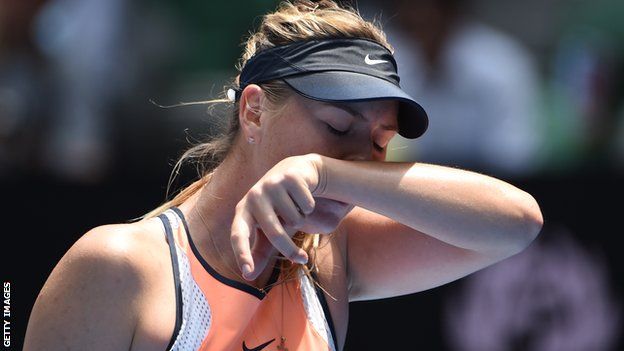Maria Sharapova may not play again, says Russian official
- Published

Maria Sharapova announced she tested positive for meldonium in March
Former world number one Maria Sharapova may never play again following her failed drugs test, the president of the Russian Tennis Federation says.
The Russian, 29, tested positive for meldonium at January's Australian Open.
When asked if Sharapova would play any more tournaments, Shamil Tarpishchev told R-Sport news agency it was "very doubtful" and added the five-time Grand Slam winner was in a "bad situation".
In March, Sharapova said she was "determined to play tennis again".
The International Tennis Federation (ITF) provisionally suspended Sharapova on 12 March.
She is waiting to hear the full extent of her punishment, which could be as much as a four-year ban, although experts say a six-month or 12-month suspension is more likely.
That is because the World Anti-Doping Association (Wada) admitted in April that scientists were unsure how long meldonium stayed in the system.
It even suggested athletes who tested positive for the substance before 1 March could avoid bans, provided they had stopped taking it before 1 January.
However, Sharapova has already admitted she continued taking meldonium past that date, saying she was unaware it had been added to the banned list as she knew it by another name - mildronate.
We've launched a new BBC Sport newsletter ahead of the Euros and Olympics, bringing all the best stories, features and video right to your inbox. You can sign up here., external
- Published8 March 2016
- Published17 June 2019
- Published19 July 2016